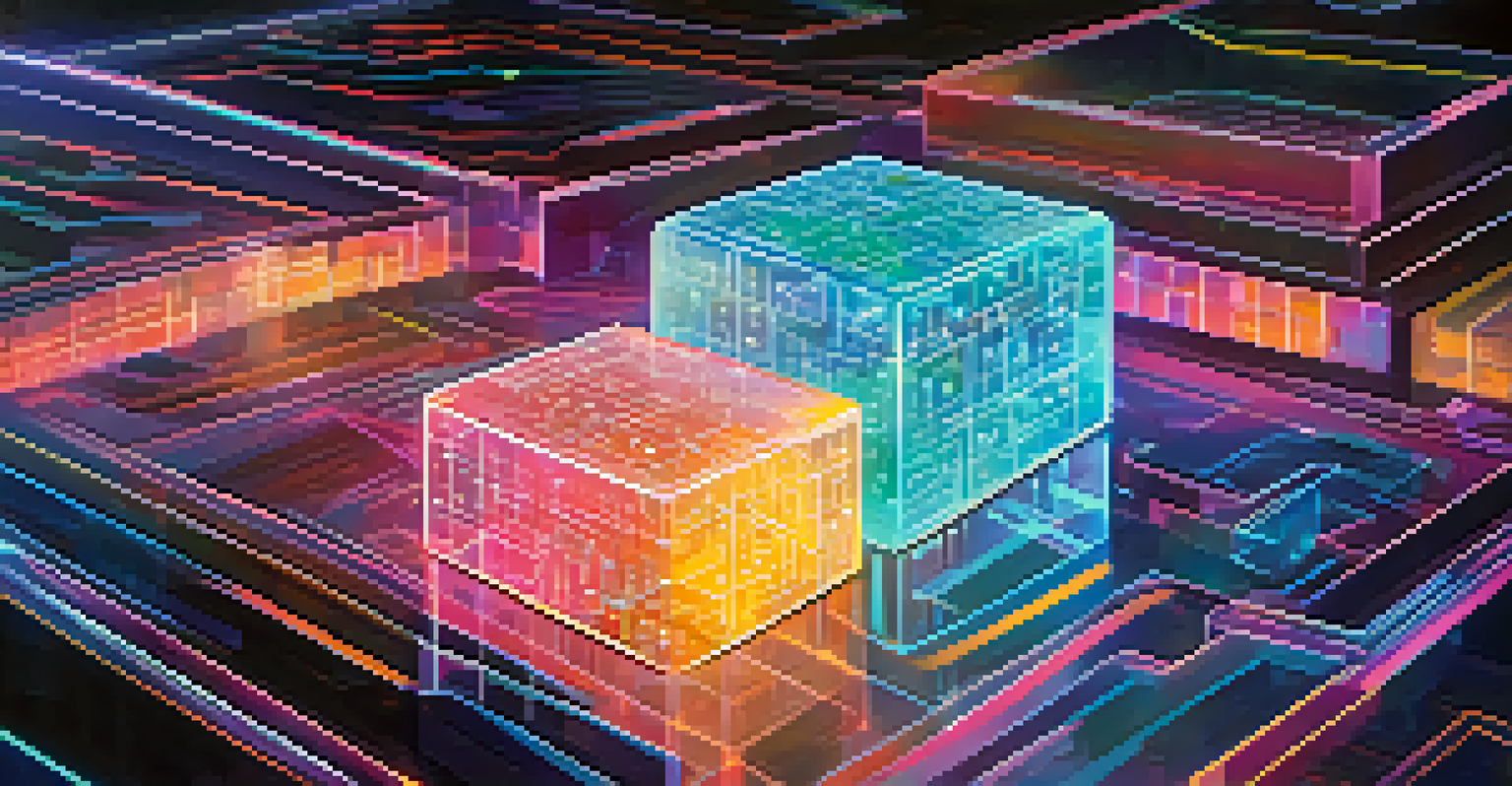Decentralized Voting Mechanisms in DAOs Explained

What Are DAOs and Why Voting Matters
Decentralized Autonomous Organizations, or DAOs, are organizations that operate through smart contracts on a blockchain. They are designed to be transparent and democratic, allowing members to participate in decision-making processes. Voting is a crucial component of DAOs, as it empowers members to influence the direction and policies of the organization.
The real power of a DAO lies in its members and their ability to govern collectively, ensuring that every voice matters.
Without a proper voting mechanism, DAOs would struggle with governance, leading to confusion and potential conflicts. The effectiveness of a DAO often hinges on how well its voting system functions, as it determines how decisions are made and who gets to make them. Therefore, understanding voting mechanisms is essential for any member or potential member of a DAO.
In essence, voting in DAOs is not just about making decisions; it's about fostering a sense of community and ownership among members. By giving individuals a voice, DAOs create a more inclusive environment where everyone can contribute to the organization's vision.
Key Features of Decentralized Voting Mechanisms
Decentralized voting mechanisms are characterized by transparency, inclusivity, and security. Transparency ensures that all votes and results are publicly accessible on the blockchain, allowing members to verify the process. Inclusivity means that every member has the opportunity to participate, fostering a sense of belonging and responsibility.

Security is paramount in these voting systems. Utilizing blockchain technology, votes are recorded in a tamper-proof manner, ensuring that the results cannot be manipulated. This level of security builds trust among members, as they can be confident that their votes count and that the outcomes are genuine.
Voting Empowers DAO Members
Decentralized voting in DAOs fosters community engagement and gives members a voice in decision-making.
Moreover, decentralized voting mechanisms often incorporate innovative features like quadratic voting or liquid democracy. These approaches allow members to express preferences more flexibly, enhancing the decision-making process and leading to more representative outcomes.
Types of Voting Mechanisms in DAOs
There are various types of voting mechanisms used in DAOs, each with its unique advantages and use cases. One common method is direct voting, where members cast their votes directly on proposals. This approach is straightforward but can sometimes lead to polarization if the voting power is concentrated among a few individuals.
Decentralized governance allows us to create systems that are truly representative of the community's will.
Another popular mechanism is token-weighted voting. In this system, members' voting power is proportional to the number of tokens they hold. This method can incentivize participation but may also create disparities, as wealthier members have more influence over decisions.
Lastly, there’s the concept of delegated voting, where members can delegate their voting power to trusted representatives. This option can simplify the voting process for those who may not have the time or expertise to participate actively, ensuring that more voices are represented in the decision-making process.
The Role of Smart Contracts in Voting
Smart contracts are self-executing contracts with the terms directly written into code. In the context of decentralized voting, they automate the voting process, ensuring that votes are counted accurately and transparently. By leveraging smart contracts, DAOs can eliminate the need for intermediaries, reducing costs and potential biases.
These contracts can also incorporate complex rules and conditions, allowing for more sophisticated voting mechanisms. For example, a smart contract can automatically execute a proposal if it receives a certain percentage of votes within a specified timeframe. This level of automation not only enhances efficiency but also streamlines governance.
Security in Decentralized Voting
Blockchain technology ensures that votes are tamper-proof and transparently recorded, building trust among members.
Additionally, smart contracts contribute to the security of the voting process. Once a vote is cast, it is recorded on the blockchain and cannot be altered, providing a permanent and immutable record of the decision-making process.
Challenges of Decentralized Voting in DAOs
While decentralized voting mechanisms offer numerous benefits, they are not without challenges. One significant concern is voter apathy, where members may feel disengaged or believe their vote does not matter. This lack of participation can undermine the effectiveness of the voting process and lead to decisions that do not reflect the community's true preferences.
Additionally, technical barriers can deter some members from participating in the voting process. Those who are not tech-savvy may struggle to navigate the voting platform, which can lead to unequal participation. Ensuring that voting systems are user-friendly is essential to address this issue.
Lastly, there is the risk of vote manipulation or collusion, especially in token-weighted voting systems. Members with substantial token holdings may exert undue influence, leading to outcomes that favor a select few. It’s crucial for DAOs to implement safeguards to mitigate these risks and ensure fair governance.
Real-World Examples of Decentralized Voting
Several DAOs have successfully implemented decentralized voting mechanisms, showcasing their effectiveness. One notable example is MakerDAO, which uses a governance token system where MKR holders vote on critical decisions affecting the platform. This model has allowed the community to steer the direction of the protocol while maintaining transparency.
Another example is Aragon, a platform that enables users to create and manage their DAOs. Aragon offers various voting mechanisms, including direct and delegated voting, allowing organizations to tailor their governance structures according to their specific needs. This flexibility empowers communities to establish governance processes that resonate with their values.
Challenges of DAO Voting Systems
Issues like voter apathy and technical barriers can hinder participation in decentralized voting, affecting governance outcomes.
These real-world applications illustrate the potential of decentralized voting mechanisms to foster community engagement and drive innovation in governance. As more DAOs emerge, we can expect to see continued experimentation with diverse voting models.
The Future of Voting in DAOs
The future of voting in DAOs looks promising as technology continues to evolve. Innovations in blockchain and smart contract development are likely to enhance security, efficiency, and accessibility of voting mechanisms. As these technologies mature, we can expect to see even more sophisticated systems that cater to the diverse needs of DAO members.
Moreover, the rise of decentralized identity solutions could play a crucial role in ensuring fair participation. By enabling users to authenticate themselves securely and anonymously, these solutions can help mitigate issues such as voter fraud and manipulation, fostering a more equitable voting environment.

As DAOs gain traction across various industries, the ongoing development of decentralized voting mechanisms will be vital for their success. By prioritizing transparency, inclusivity, and security, DAOs can create robust governance structures that empower communities and drive meaningful change.